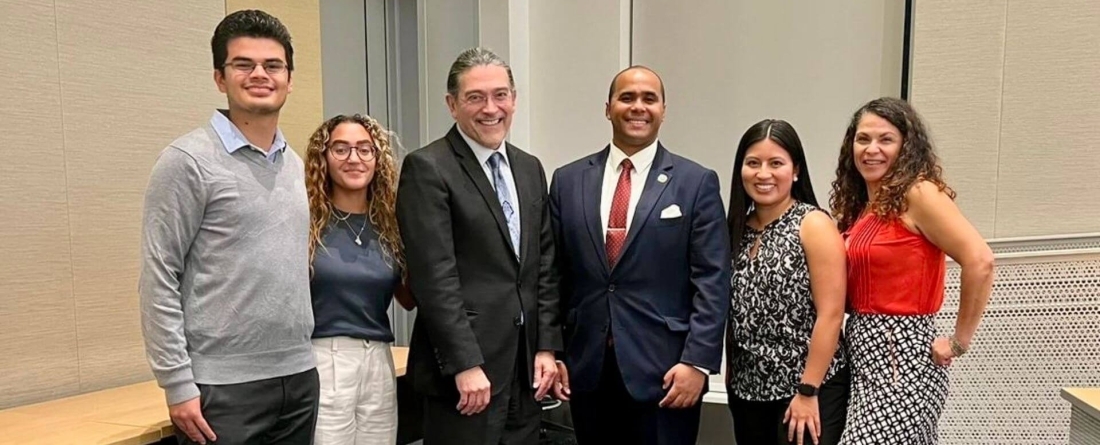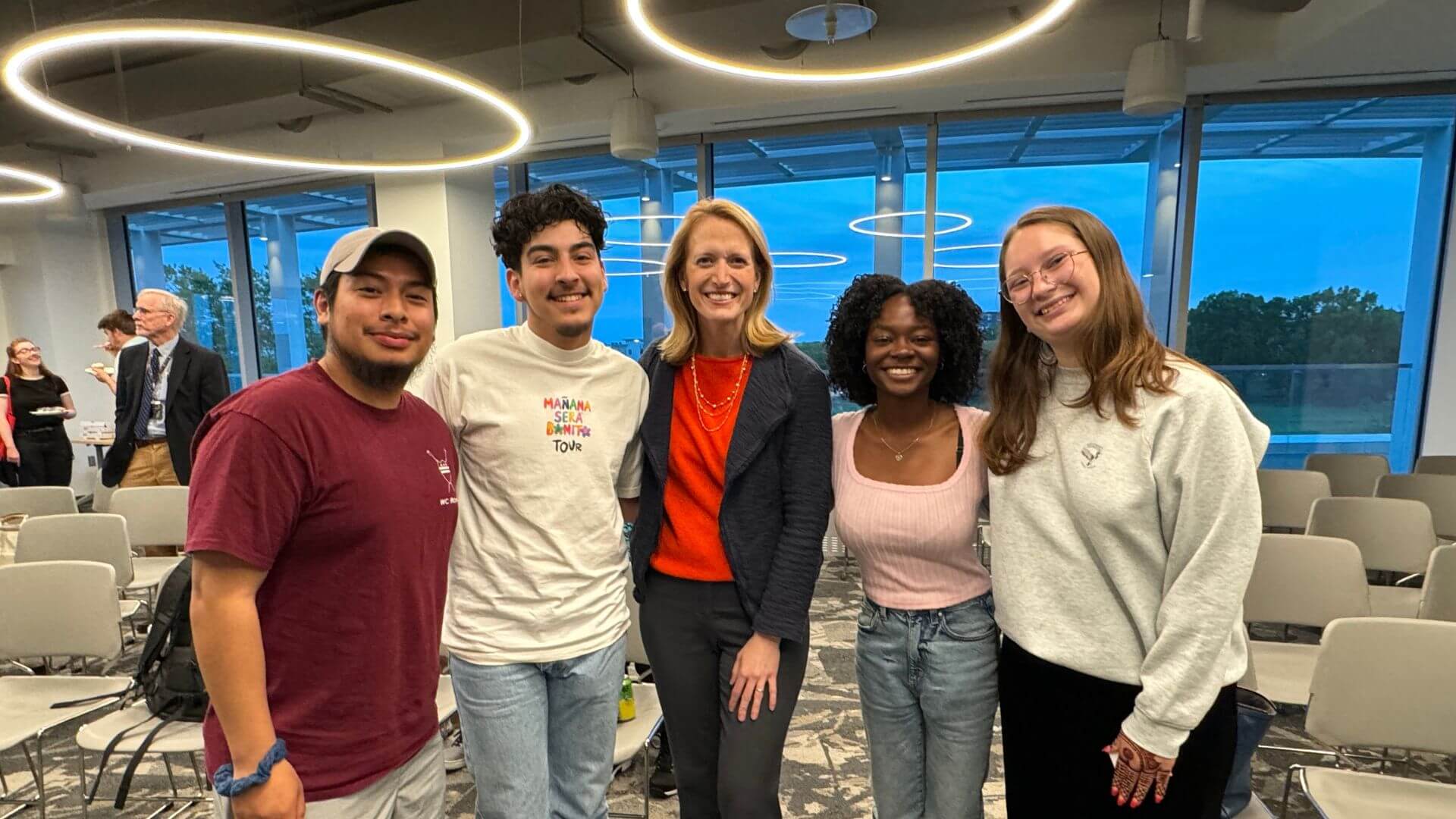
On Wednesday night, the University of Maryland School of Public Policy hosted an enlightening event as La Gente, SPP's Latinx student organization, and the School’s Alumni Board came together to welcome U.S. Census Bureau Director Robert Santos. Together, they engaged in a meaningful conversation, shedding light on the crucial topics of Latinx civic engagement and the significance and consequences of accurately counting the Latinx community.
Focusing on the importance of individuals' contributions to our collective experience, Santos set the tone for a discussion that focused on the value of diverse voices, community engagement and a belief in one’s own ability to accomplish their goals.
“I appreciated the director’s advice to students during his opening remarks,” shared Diana Carrillo, La Gente graduate co-president. “He told students that everything we need to be successful, we already have. We just need to let it out.”
Carillo also highlights that Santos' advice empowered students, especially Latinx students who may frequently grapple with imposter syndrome, encouraging them to embrace and believe in their own abilities.
Jason Nuñez, chief of staff for State Delegate Deni Taveras, engaged Santos in a discussion that covered topics ranging from the COVID-19 pandemic's influence on the 2020 census count to the resilience exhibited by certain communities amidst pandemic challenges, and the unique experiences and challenges faced by Santos as the first Latino to hold the position of U.S. Census Bureau Director.
Santos recalled that, initially in his career, he did not dwell on being the first Latino in the roles and positions he was serving; he simply embraced each opportunity as it came his way. However, as time passed, he began to recognize the scarcity of Latinos across various fields. He vividly recalled a moment early in his career when he found himself as the sole Latino in a room, and his unique perspective on a research project revealed a potential two-tiered healthcare outcome that could have disenfranchised communities lacking health insurance.
When asked about the path forward and how today's and tomorrow's leaders can champion historically marginalized communities while ensuring their voices are heard, Santos shared, " It’s all about civic engagement. We’re all a part of something greater and we have an obligation to help each other." He went on to emphasize, "We need to think about solving problems with our own unique experiences." Santos quickly offered compelling examples of how local communities demonstrated their unique and supportive roles during the 2020 census count.
National Census Day was April 1, 2020, and Covid began to shut everything down in March 2020. “All plans for April, which were ten years in the making, were shut down and had to be shifted,” Santos recalled. “All work in the field stopped for five weeks.”
Emphasizing the Census Bureau's partnership with local mask manufacturers, Santos revealed how this collaboration empowered their staff to safely return to fieldwork. Local community partners across the U.S. developed innovative methods to get their messages out while implementing appropriate COVID-19 safety measures. “A Latino community in the Fruitvale neighborhood of Oakland, California put census announcements on ‘Loteria cards’ to connect with their community, and one group got an ice cream truck and announced the census from that truck all around the community,” he said.
When asked about the overall impact that Covid had on the count, Santos reminded us that there has never been a perfect census. “There are always shortcomings and limitations. You need to make an assessment so you understand those limitations and then strive to be better. Strive for perfection, knowing we’re never going to get there.”
Lessons learned from implementing a census count during a pandemic are already being implemented. What the Census Bureau is doing: They’re continually engaging with community partners and trusted messengers now, instead of closer to the date as they did before. “A key goal for the 2030 census is to establish relationships with these trusted messengers because the census recognizes it cannot do this work alone,” acknowledged Santos.
Underscoring the department's ongoing data collection duties, Santos emphasized that the Census Bureau plays a pivotal role in policymaking beyond the census count every 10 years. “Census provides data so policymakers can have the tools to make policy decisions,” he said. The Census Bureau engages in frequent surveys and data collection encompassing areas such as housing, crime, health and economic indicators. This data forms the foundation for key metrics like the unemployment rate and job creation figures.
“It was important to host Director Santos not only to display the significance of data in the creation of evidence-based policies, but also to highlight the achievement of a high-ranking Latino government official,” reflected Katherine Badia, La Gente undergraduate co-president.
Santos brought the conversation full circle when an audience member inquired about how to best navigate the political leaders in her community who have responded negatively to the changing demographics of her community. He emphasized, “A diverse population is an asset that reinforces innovation and creativity. We all need to find ways to see that diversity as a strength, not a weakness.”



